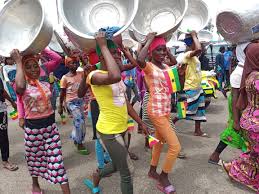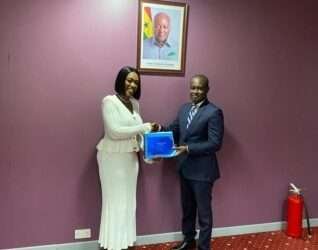Despite the tension that existed between the Western Allies and the Soviet Union, they recognized a need to work together to meet the threat of Nazi aggression under the leadership of Adolf Hitler during world war II. This exactly explained the ancient proverb that says ‘the enemy of my enemy is my friend’.
This ancient proverb suggests that two parties can or should work together against a common enemy. Exactly 75 years after the second world war, comes the COVID-19 pandemic.
The outbreak of the coronavirus pandemic has made cooperation more important than ever before, either between or within countries, allies, or foes. Whilst it has exposed the weaknesses in the increasing globalization of nations, it has also brought to the fore the gains of collectivism in the fight against a common enemy.
For instance, despite their differences, China provided medical supplies to the US when the virus became widespread in the US around March.
Developed nations, regardless of been hit hard by the pandemic, have stepped up to help the developing and immerging economies whose health systems are fragile. Multilateral organizations like the World Bank and the IMF have granted relief packages to a lot of nations.
According to the IMF, it is currently making about $250 billion, a quarter of its $1 trillion lending capacity, available to member countries. The Fund has also granted a total debt relief for 29 countries totaling $488.7 million.
Similarly, the World Bank Group also indicated that it is making available up to $160 billion over 15 months ending June 2021 to help more than 100 countries protect the poor and vulnerable, support businesses, and bolster economic recovery.
This includes $50 billion of new IDA resources through grants and highly concessional loans and $12 billion for developing countries to finance the purchase and distribution of COVID-19 vaccines.
Whist Ghana has also benefited from the multinational support, Public-Private Partnership (PPP) was key to Ghana’s COVID-19 response. On April 13, 2020, the IMF Executive Board approved the disbursement of US$1 billion for Ghana to be drawn under the Rapid Credit Facility.
The World Bank on November 10, 2020,approved an additional credit of $130 million from the International Development Association (IDA) for the Ghana COVID-19 Emergency Preparedness and Response Project.
The additional financing in the health sector, according to the world bank, will support the Government of Ghana to scale up its efforts to mitigate the resurgence of the COVID-19 pandemic and to safely reopen its economy.
Private sector response
In Ghana, the private sector has supported the government in diverse ways since the outbreak of the pandemic. This has led to the establishment of the Ghana COVID-19 Private Sector Fund.
The Ghana COVID-19 Private Sector Fund is an initiative by the Government of Ghana (GOG) to help fight the novel coronavirus pandemic. The fund was established by ten businessmen and women to raise GHC 100,000 to support the effort of the government by providing intervention to support the public who have been hard hit by the COVID-19 pandemic in Ghana either economically, socially and politically

This project was established to support Kayaye (head porters) with food and accommodation during the lockdown period in other to curb the widespread of the coronavirus. This was done to cater for 8000 head porters of which 6000 were in Accra and 2000 were in Kumasi. The duration of the intervention was from 1 April 2020 to 12 April 2020. The total cost of food, water, logistics, and all the incidental cost at the end of the project was GHS906,541.
Ghana Infectious Disease Centre
The Ghana Infectious Disease Centre was built because the country did not have an infectious disease center, so there was a need to build one through the use of the COVID-19 fund. On 21st August 2020, the Ghana COVID-19 Private Sector Fund received GHS6.8 million from the National COVID-19 Trust Fund to contribute to the construction of the Ghana Infectious Disease Centre.
Key government interventions
The finance minister, Ken Ofori-Atta, has outlined the various initiatives put in place by the government to reduce the impact of the coronavirus pandemic on households and businesses in parliament whilst presenting the Q1 2021 Budget statement.
These responses include; implementing the GH¢1,342million Covid-19 Emergency Preparedness and Response Plan to protect lives; Operationalizing the GH¢1.2 Billion Coronavirus Alleviation Program (CAP) to support businesses; Launching a GH¢2 billion Guarantee Scheme to enable SMEs to borrow at a more affordable rate; supporting the GH¢3 billion credit and stimulus package by commercial banks in Ghana to revitalize industries, especially pharmaceutical, hospitality, services, and manufacturing sectors.
Others include support in income increases and life insurance over GH¢ 320 million to incentivize health workers and allied professionals; supporting households and businesses with electricity and water subsidies over GH¢1.3 billion; and funding the provision of cooked food to 1.83 million and 917,000 vulnerable persons within Accra & Kumasi metropolis, respectively.
This further highlighted the significance of PPP in the developmental processes of the country.





















